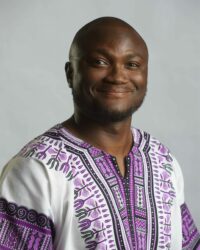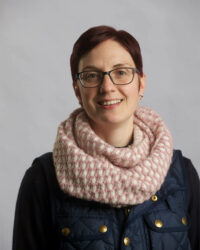Introduction to R: Management, Exploration and Communication
Applications are closed. Enquiries may be directed to the SACEMA Training Coordinator, Faikah Bruce faikah@sun.ac.za
Applications for the short course on Introduction to R: Management, Exploration and Communication of Data are closed.
Course fee
The course fee is R9 495,00 for early bird registration (by 15 July 2022) and R10 550,00 for late registration.
Please note that full payment must be processed prior to start of the course.
Enquiries may be directed to the SACEMA Training Coordinator, Faikah Bruce (faikah@sun.ac.za) or the SACEMA Deputy Director: Operations, Lynnemore Scheepers (scheepersl@sun.ac.za).
Course Overview
R is an open-source, statistical software platform that is growing in popularity due to its rapidly expanding amount of libraries containing cutting-edge statistical functions, as well as the user-friendly, built-in communication tools in RStudio. Course participants will not only be introduced to the basics of programming in R, but they will also learn how import and clean data in addition to visualising and reporting results. Specific topics that will be covered include: importing data; reshaping/tidying data; merging/joining datasets; handling dates, transforming numeric and categorical variables and summarizing data with plots and tables.
Course Outline
Participants will learn the basics of:
- Base R programming and coding style
- Data importation into and exportation out of RStudio
- Data cleaning/tidying into a format suitable for analysis (using tidyverse packages like dplyr and tidyr)
- Data analysis using basic descriptive statistics
- Data exploration and visualization using ggplot 2 and a combination of R packages for plotting and summarising data and a sneak peek into creating reproducible, dynamic reports using RMarkdown
The course is suitable for graduate students or professionals who are familiar with statistical analysis and have managed or interacted with datasets using other software platforms.
Applications are closed.
Intro to R Course 2022
Presenters

Dr James Azam
Dr James Azam is currently a Junior Researcher at SACEMA. He recently completed a PhD in Applied Mathematics from Stellenbosch University (through SACEMA) with a project that involved a systematic review of outbreak response models of human vaccine-preventable diseases and foot-and-mouth disease, and modelling analyses of outbreak response strategies for responding to a measles outbreak using outside cold chain strategies and a hypothetical disease that faces the risk of variant emergence. His PhD project was supervised by Prof. Juliet Pulliam (SACEMA director) and Prof. Matt Ferrari (Penn State University). James holds a master’s degree in Mathematics from Stellenbosch University (through SACEMA), a Structured Master’s degree from the African Institute for Mathematical Sciences in Senegal, and a bachelor’s degree in Actuarial Science from the Kwame Nkrumah University of Science and Technology (KNUST) in Ghana. He has tutored courses at SACEMA, and the Mathematics Departments of Stellenbosch University and KNUST. He has research interests in outbreak response modelling and analytics, health data science/analytics, science policy and communication. As a Junior Researcher, he will contribute to an ongoing project involving the development of a routine surveillance pipeline for monitoring and flagging changes in COVID-19 severity in South Africa, participating in SACEMA’s Modelling and Analytics Response Team (SMART), contributing to some short courses and training activities, and publishing previous work from his PhD.

Dr. Larisse Bolton
Dr Larisse Bolton holds a BSc in Chemistry and a PhD in Applied Mathematics from the University of the Free State in Bloemfontein, South Africa. Her postgraduate research focused on the application of mathematical modelling in oncology using different approaches – model adaptation and model construction. She was a postdoctoral research fellow at the DSI-NRF Centre of Excellence in Epidemiological Modelling and Analysis (SACEMA) in Stellenbosch from 2018-2021 and now holds the position of Researcher at SACEMA. Her current research focuses on blood systems analysis. She has been assessing blood product usage and demand in South Africa and is developing a predictive model for red blood cell product usage. The model will be used to investigate various scenarios of health system structuring.


